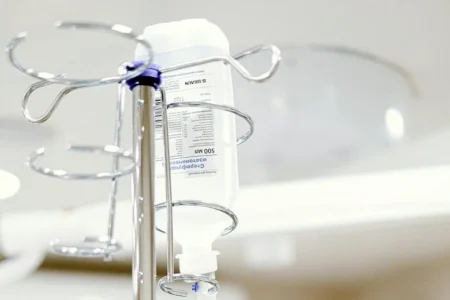Getting Help for Drinking in Arizona’s Largest Metro Area
- Updated on: Jan 9, 2025
- 4 min Read
- Published on Jan 9, 2024

Arizona, with its sprawling landscapes and vibrant cities, is home to diverse communities. In the state’s largest metro area, residents often face various challenges, including issues related to alcohol consumption. Recognizing the importance of seeking help for drinking-related concerns is crucial for individuals to lead healthier and more fulfilling lives.
Understanding the Need for Help
Excessive alcohol consumption can have severe consequences on one’s physical and mental well-being. From strained relationships to health complications, the impact of alcohol misuse can be pervasive. Arizona’s largest metro area is not exempt from these challenges, and it is essential for individuals grappling with alcohol-related issues to seek assistance.
Navigating the Resources
Fortunately, there are numerous resources available in the metro area to help individuals overcome alcohol-related challenges. Support groups, counseling services, and treatment centers play a pivotal role in providing guidance and assistance to those in need. One such resource that individuals can turn to is the Arizona Substance Abuse Helpline, which offers confidential and compassionate support for those struggling with alcohol dependency.
The Arizona Substance Abuse Helpline
When seeking help for drinking in Arizona’s largest metro area, the Arizona Substance Abuse Helpline stands out as a valuable resource. This helpline connects individuals with trained professionals who can offer guidance, information, and referrals to appropriate treatment facilities and support groups. Whether someone is dealing with mild alcohol misuse or facing a more severe dependency, the helpline provides a safe and confidential space to discuss concerns and explore available options.
Rehabilitation and Treatment Centers
For those requiring more structured assistance, rehabilitation and treatment centers in the metro area can be instrumental in the recovery process. These facilities offer comprehensive programs designed to address the physical, emotional, and psychological aspects of alcohol dependency. From detoxification services to counseling and aftercare programs, these centers aim to provide a holistic approach to overcoming alcohol-related challenges.
Community Support
In addition to professional resources, community-based support groups can play a vital role in an individual’s journey towards recovery. Arizona’s largest metro area hosts various Alcoholics Anonymous (AA) meetings and other support groups where individuals can connect with others facing similar challenges. The sense of community and shared experiences can be empowering and contribute to a supportive environment for recovery.
Seeking Assistance in Getting Detox and Treatment for Alcohol Addiction
If you or a loved one is grappling with alcohol addiction, it’s crucial to reach out for support in getting detox and treatment for booze. Recognizing the need for professional help is the first step toward recovery, and there are various resources available to guide you through this challenging journey.
Seeking CHC’s assistance in getting detox and treatment for booze is a proactive and courageous decision, as it opens the door to a path of healing and sobriety. Whether you explore rehabilitation programs, counseling services, or support groups, there are compassionate professionals and communities ready to provide the necessary aid. By taking this step, you’re not only investing in your well-being but also paving the way for a healthier and more fulfilling future.
Does My Insurance Plan Cover Alcohol Addiction Treatment?
To determine whether your insurance plan covers alcohol addiction treatment, you should contact your insurance provider directly. Insurance coverage for addiction treatment can vary widely depending on the specific plan, the insurance company, and the state or country in which you reside.
Here are some steps you can take to find out if your insurance plan covers alcohol addiction treatment:
Review your insurance policy documents: Look through your insurance policy documents, including the summary of benefits and coverage. This information will often outline what types of addiction treatment services are covered.
Contact your insurance provider: Call the customer service number on the back of your insurance card. Speak with a representative and ask about coverage for alcohol addiction treatment. Be specific in your questions, asking about inpatient and outpatient services, detoxification, counseling, and any other relevant treatments.
Ask about network providers: If your insurance plan covers addiction treatment, inquire about in-network providers. Insurance plans often have a network of preferred providers, and using these providers may result in lower out-of-pocket costs for you.
Verify coverage details: It’s essential to understand the extent of your coverage, including any copayments, deductibles, and coverage limits. Some plans may have limitations on the number of days or sessions covered.
Pre-authorization requirements: Some insurance plans may require pre-authorization or pre-certification for addiction treatment services. Make sure you understand and fulfill any pre-authorization requirements to ensure coverage.
Explore mental health parity laws: In many places, there are mental health parity laws that require insurance plans to offer coverage for mental health and substance use disorder services on par with coverage for other medical conditions. Check if these laws apply to your situation.
Keep in mind that insurance coverage can change, so it’s crucial to confirm the details with your insurance provider. If you’re having difficulty navigating your insurance coverage, you may also consider seeking assistance from the treatment facility or a healthcare advocate who can help you understand and maximize your benefits.
Conclusion
Get help for drinking in Arizona’s largest metro area by reaching out to the Arizona Substance Abuse Helpline and exploring available resources for a healthier future. Recognizing the need for help and seeking assistance for drinking-related issues is a significant step towards a healthier and more fulfilling life. In Arizona’s largest metro area, individuals have access to a range of resources, including the Arizona Substance Abuse Helpline, rehabilitation centers, and community support groups. By taking advantage of these resources, individuals can embark on a path toward recovery, fostering a positive change in their lives and contributing to the overall well-being of the community.












